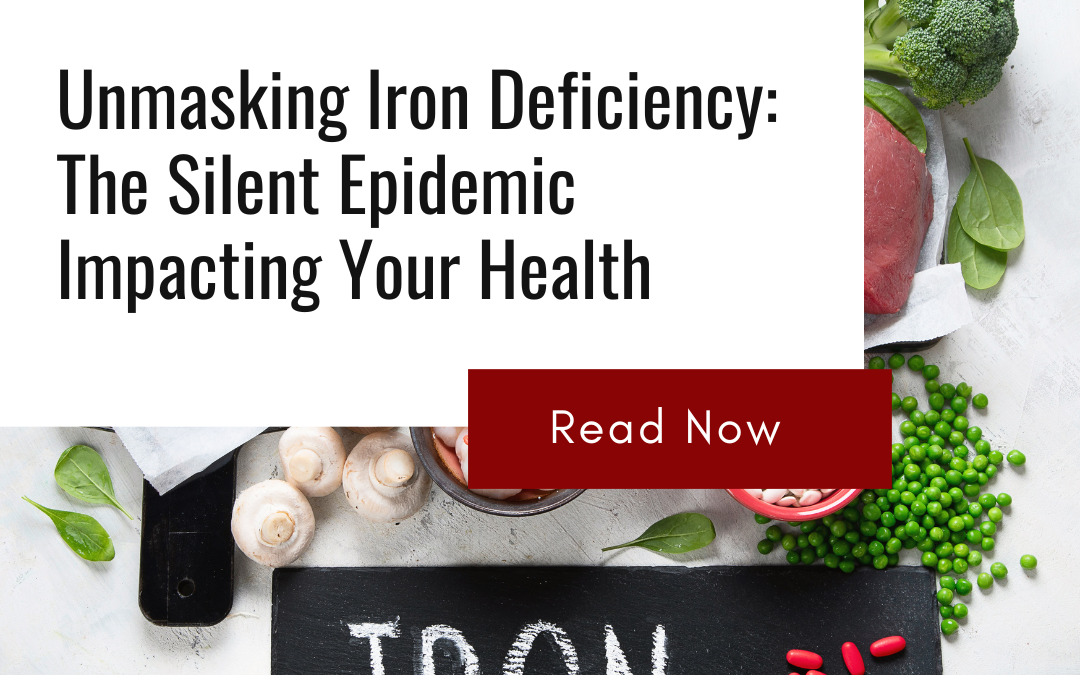Gut health plays a crucial role in iron absorption because the majority of iron absorption occurs in the small intestine. Iron deficiency anemia is a common medical condition characterized by a decrease in the number of red blood cells or the amount of hemoglobin in the blood due to insufficient iron.
Iron is crucial for the production of hemoglobin, the protein in red blood cells that carries oxygen to tissues throughout the body. Several factors can contribute to iron deficiency anemia, including:
- Heavy Menstrual Flow: Women with heavy menstrual periods are at increased risk of iron deficiency anemia because they lose more blood during menstruation, leading to greater iron loss.
- Dietary Factors: Certain foods can inhibit the absorption of iron. For example, foods high in oxalates (such as spinach, beet greens, and rhubarb) and phytates (found in whole grains and legumes) can bind to iron and inhibit its absorption in the intestine. Additionally, tannins in tea and coffee can also hinder iron absorption.
- Vegetarian and Vegan Diets: Individuals who follow vegetarian or vegan diets may be at higher risk of iron deficiency anemia because plant-based sources of iron (non-heme iron) are not as readily absorbed by the body as heme iron from animal sources. TIP: Cook plant sources of iron (such as vegetables) to enhance iron absorption from plant-based sources.
- Conditions that Affect Absorption: Certain medical conditions such as celiac disease, inflammatory bowel disease, or gastric bypass surgery can impair the absorption of iron from the diet, leading to an increased risk of iron deficiency anemia.
- Increased Iron Requirements: Periods of rapid growth (such as during infancy, adolescence, and pregnancy) or increased blood loss (such as in women during pregnancy) can increase the body’s need for iron, leading to deficiency if dietary intake is insufficient.
It’s important to note that while iron supplementation can help treat iron deficiency anemia, it may not be suitable for everyone. Women who no longer menstruate due to menopause or hysterectomy, or those with certain medical conditions like hemochromatosis (a condition causing excessive iron absorption), should not supplement with iron without medical supervision.
Signs and symptoms of iron deficiency anemia may include:
- Fatigue and weakness
- Pale skin
- Shortness of breath
- Dizziness or lightheadedness
- Cold hands and feet
- Headaches
- Brittle nails
- Rapid or irregular heartbeat (palpitations)
- Pica (craving for non-nutritive substances such as ice, dirt, or starch)
If you suspect you have symptoms of iron deficiency anemia, it’s important to consult a healthcare professional for proper diagnosis and treatment. Treatment may involve dietary changes, iron supplementation, or addressing the underlying cause of the deficiency.
If you are ready to start your journey to well-being. You can schedule a consultation here: https://www.healthymotives365.com/services/
Dr. LIndsay Banks


